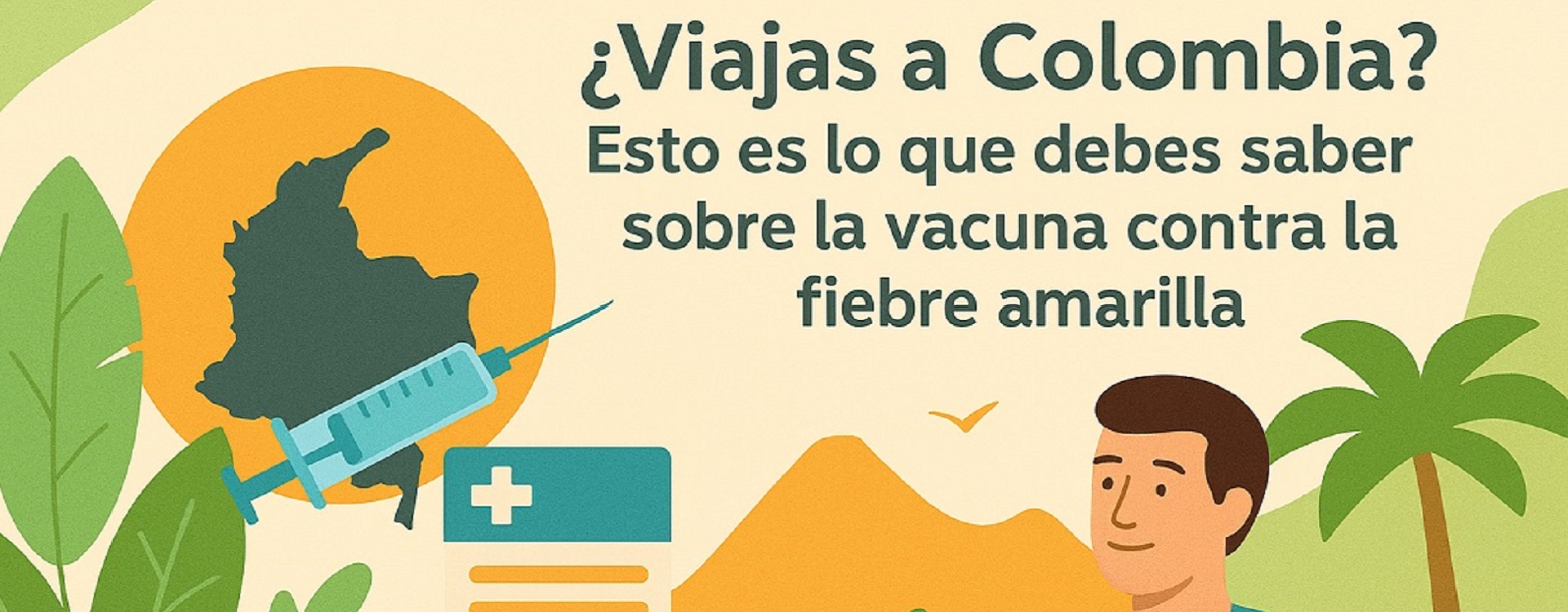A quick guide for travelers visiting Colombia´s tropical regions- stay safe, informed, and ready for adventure.
Planning a trip to the Colombian Amazon, an eco-adventure in Chocó, or a trek through the Sierra Nevada de Santa Marta? Colombia is full of unforgettable natural experiences! But before you pack your bags, there's one important health precaution you shouldn’t overlook: the yellow fever vaccine.
At Frontera Travel, we’ve put together everything you need to know so you can travel safely and confidently.
What Is Yellow Fever and Why Does It Matter?
Yellow fever is a viral disease transmitted by mosquitoes in tropical regions. While it's rare in urban areas, it can be found in some of Colombia’s rainforest and jungle zones. The good news? It’s easily preventable with a safe and effective vaccine that offers lifelong protection.
Who Should Get Vaccinated?
Not every traveler needs the vaccine, but it’s highly recommended—or even required—if you're heading to certain areas in Colombia.
Vaccination is recommended for:
- Domestic and international travelers visiting areas such as: Amazonas, Guainía, Guaviare, Vaupés, Putumayo, Meta, Caquetá, Chocó, and the Sierra Nevada de Santa Marta.
- Visitors to national parks and natural reserves in tropical zones.
- Children 9 months and older.
- Adults up to 60 years old.
When Should You Get It?
You should get vaccinated at least 10 days before your trip, as that's how long it takes to develop immunity.
Where Can You Get Vaccinated?
In Colombia, the yellow fever vaccine is free of charge at many public health centers.
It’s also available at:
- Major international airports like El Dorado (Bogotá)
- Regional health offices
- Certified private clinics
If you're coming from abroad, make sure the vaccine is WHO-approved and that you receive an international vaccination certificate.
Is It Mandatory to Enter Colombia?
That depends. It’s not required for all travelers, but:
- If you're coming from a country with a risk of yellow fever (like Brazil or certain parts of Africa), you may need a vaccination certificate to enter.
- Some tourist destinations and national parks require proof of vaccination for entry.
Who Should Not Get Vaccinated?
- People with severe egg allergies
- Adults over 60 without prior vaccination (consult your doctor)
- Pregnant individuals (check with a health professional)
- Immunocompromised individuals
If you're in one of these groups, a medical exemption certificate may be necessary.
Travel Tips
- Always carry your vaccination certificate (printed or digital).
- Use mosquito repellent and long-sleeved clothing in tropical zones.
- Plan ahead to meet all health and entry requirements.
Discover More of Colombia
At Frontera Travel, we specialize in authentic journeys through Colombia’s most unique regions. Curious about where to go next?
Visit:
www.fronteratravel.co
Ready for the adventure? Just get your shot—and your certificate—and Colombia is yours to explore!
📢 New Measures from Colombia's National Natural Parks (Circular No. 20251300000044)
Starting in April 2025, new mandatory measures will be implemented for entry into the 61 protected areas and 4 National Integrated Management Districts managed by Colombia’s National Natural Parks:
🛑 Key Measures:
Vaccination card required:
You must present your yellow fever vaccination card showing it was administered at least 10 days prior to entry.
Tourism operators:
All operators with contracts or agreements within the parks must require the vaccination card as part of the access control process.
No card, no entry (unless declaration is signed):
If you are vaccinated but do not have your card and are not listed in the PAI WEB system, you must sign a sworn declaration accepting full responsibility for potential infection risk.
Epidemiological surveillance:
National Parks will reinforce surveillance of both humans and non-human primates, in coordination with local and regional health authorities.
Validity of the measures:
These measures will remain in effect until eight consecutive epidemiological weeks have passed without any human cases or epizootics, or until the Ministry of Health issues a new notice lifting the restrictions.
4o







